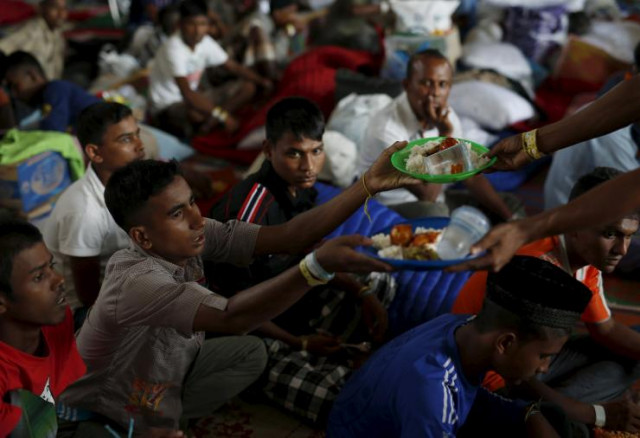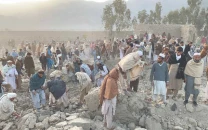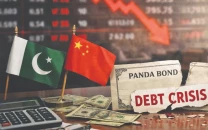Rescuing the Rohingyas
Pakistanis, particularly Shia Hazaras, like Rohingyas, get on rickety boats everyday in hope for survival elsewhere

Bangladesh agreed to take back its migrants from Myanmar and Indonesia on May 25, 2015. PHOTO: REUTERS
Rohingya Muslims are more than just “boat people”. They are a stateless, ethnic minority that has been subjected to systematic persecution for decades. And in recent years, since the widespread violence in Rakhine State in 2012, between Buddhists and Muslims, left nearly 200 dead, tens of thousands of Rohingya homes have burnt to the ground, while thousands of people have been displaced and forced to live in camps. Since the 2010 communal violence, an estimated 120,000 people from the minority community have boarded boats to flee poverty and persecution, according to the UN Refugee Agency (UNHCR). In the first three months of 2015 alone, an estimated 25,000 people, which is double the number than last year, took to the seas in hope for survival. People have died on board or jumped from boats because of mental suffering, while women and children have been subjected to human smuggling.
But countries in Asia, particularly Thailand, that is most accused of human trafficking of Rohingyas, have had the most deplorable response to the human rights abuses and consequential exodus from Myanmar. Over the past months, Malaysia, Thailand and Indonesia have pushed back migrant boats, leaving hundreds to die at sea. It was not until surmounting international pressure and horrifying images of people stranded with little food and water went viral, that Malaysian and Thai authorities allowed the migrants to land.
It is indeed a global struggle to respond to the refugee crisis the world is faced with today. According to the UN, it is the worst refugee crisis since World War II. In Europe alone, in 2014, more than 220,000 migrants and asylum seekers reached the continent by sea — four times as many as in 2013. But the “fortress of Europe” has cost many human lives. The EU’s response to the migrants arriving by sea is inhumane and its policies are reflective in the high death tolls of refugees and asylum seekers. More than 3,200 died in 2014, which was four times the number in 2013. And in the first quarter of 2015, the death toll is well over 1,500, compared with 96 during the first four months of last year. The ‘crisis’ in the current scenario is not migration, the crisis is the ongoing human rights violation.
Pakistan’s role and response to the rights violations in Myanmar, meanwhile, has been both ironic and interesting. In its statement, Pakistan has said it believes in peaceful coexistence of all communities in Myanmar and fundamental rights of citizenship, freedom to practise religion and security must be granted. While Pakistan’s concern and monetary assistance should be greatly appreciated, it also begs the question how authorities are so blind to the plight of thousands fleeing persecution from Pakistan today. Pakistanis, particularly Shia Hazaras, just like the Rohingyas, get on rickety boats everyday in hope for survival elsewhere. Many of them die at sea, but their desperation remains ignored. Is Pakistan responding to the Rohingya only because they are Muslim? And if so, then are its own persecuted sects not Muslim enough for the state?
Published in The Express Tribune, June 14th, 2015.
Like Opinion & Editorial on Facebook, follow @ETOpEd on Twitter to receive all updates on all our daily pieces.















COMMENTS
Comments are moderated and generally will be posted if they are on-topic and not abusive.
For more information, please see our Comments FAQ